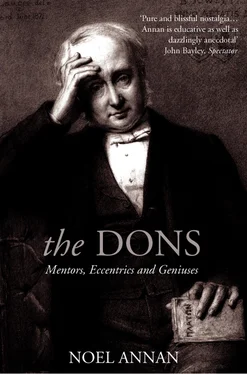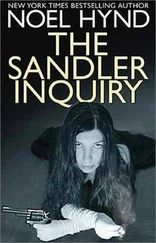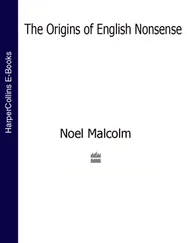Swinburne as well as George Eliot stayed in the Lodgings. Jowett asked Swinburne to look at his translation of Plato’s Symposium and when the poet suggested a sentence could be construed differently Jowett’s eyes widened: ‘Of course that is the meaning. You would be a good scholar if you were to study.’ Swinburne was set down in an adjoining room to continue the good work, and a friend talking to Jowett was interrupted by a cackle from next door. ‘Another howler, Master.’ ‘Thank you, dear Algernon,’ said Jowett as he shut the door. Jowett’s translation of Plato’s Republic was his most lasting contribution to learning. For years it was the most popular translation, much read in schools.
He liked the well-born and the famous. When the Crown-Princess of Prussia (‘little Vicky’) called on him to talk philosophy he thought her ‘quite a genius’ – and certainly she would have made a better showing than most of her women contemporaries, other than George Eliot. But he also encouraged poor men to come to Balliol and did nothing to impede the concern with working-class education and poverty that T. H. Green and Arnold Toynbee initiated and for which Balliol became so well known under the mastership of A. L. Smith and Alexander (‘Sandy’) Lindsay.
He continued to hold sharp opinions. ‘No writer,’ he said of Carlyle, ‘had done or was doing so much harm to young men as the preacher of tyranny or apologist of cruelty.’ ‘Comtism destroys the minds of men, Carlyle their morals.’ He was outraged that Governor Eyre’s *expenses should have been paid by the State. ‘A generation ago we should have hanged him.’ He hated Euripides: ‘he is immoral when he is irreligious and when he is religious, he is more immoral still.’ Staying in Scotland to deliver two lectures on Socrates he was accosted after dinner by Professor Blackie of Glasgow University, who said, ‘I hope you in Oxford don’t think we hate you.’ ‘We don’t think of you at all,’ was the reply. The snub was deserved; the professor had sung a song, unasked, called ‘The Burning of the Heretic’, which Jowett may have considered was a dig at him.
In 1882 Jowett became Vice-Chancellor for four years. Charles Fortnum again offered his collection of antique and Renaissance works of art to the Ashmolean Museum, and Arthur Evans, the prime excavator of Minoan civilisation in Crete, maintained that Jowett did his best to refuse the gift by masterly inactivity and much dissembling. In his biography Geoffrey Faber defended Jowett against this charge and pointed out that no Vice-Chancellor can accept a gift without considering what it will cost the university to accept it. Evans was young and high-handed: Fortnum, like other benefactors, hinted that his bequest could go elsewhere unless Oxford fell in with his wishes. Furthermore Jowett had always recognised that something had to be done for archaeology and for the old Ashmolean collections. Nevertheless, he acquired a reputation as one who was determined to have his way. It was said of him, ‘Parnell is not in it with him for obstruction.’ When supporters of a scheme he opposed got it put first on the agenda at the last meeting of Council, Jowett declared that no one could discuss so important a matter so late in the term and left the chair. His mode of governance lived on. Years later Lindsay, when Master of Balliol, found himself in a minority of one at a college meeting and remarked, ‘I see, we are deadlocked.’
And love? He was devoted to a giant Scotsman, Robert Morier, one of his earliest pupils who later became ambassador in St Petersburg. In the sixties he was tempted to marry the daughter of the Dean of Bristol; but when another fellow was appointed to the only fellowship in the college open to a married man, Jowett’s interest flagged. No wonder: he had fallen for Florence Nightingale. The friendship grew: he annotated three vast volumes she had written entitled Suggestions for Thought . He was impressed by her vitality, originality and by her caustic comments on the religious and social life of the day. She corresponded with him and he wrote interminable replies. Then some instinct told him that if he continued to answer her requests and some of her commands, he would wear himself out – as indeed Clough and Sidney Herbert had done. Years later the irrepressible Margot Tennant asked him outright whether he had ever been in love; and when he said he had once been very much in love she persisted and asked what she was like. ‘Very violent, my dear, very violent.’
There was another kind of love that was to confront Jowett. Disillusioned in his attempts to sustain Christianity by liberal theology, Jowett turned to Plato. Gladstone had spoken of the ‘shameless lusts which formed the incredible and indelible disgrace of Greece’, and Ruskin wondered at the ‘singular states of inferior passion which arrested the ethical as well as the formative progress of the Greek mind’. But the Aesthetic Movement began to get under way in the seventies and soon Pater’s mellifluous sentences began to be quoted and John Addington Symonds extolled the phallic ecstasy in Aristophanes. Indeed there was a falling-off of candidates for Greats and a shift towards law and the modern history school, where William Stubbs lectured (usually to classes of four or five undergraduates) on the safe subject of Parliament in the Middle Ages and never ventured later than the Thirty Years War. Greats was to recover in the eighties, when it scored twice as many firsts as history. Swinburne left no one in doubt where Jowett stood. He declared that it was impossible to confuse Jowett
with such morally and spiritually typical and unmistakable apes of the Dead Sea as Mark Pattison, or with such renascent blossoms of the Italian Renaissance as the Platonic amorist of blue-breeched gondoliers who is now in Aretino’s bosom. The cult of the calamus, as expounded by Mr Addington Symonds to his fellow calamites, would have found no acceptance or tolerance with the translator of Plato.
The translator of Plato did indeed on one occasion take action. A Balliol undergraduate, William Hardinge, sent Pater sonnets praising homosexual love. Pater responded by signing himself ‘Yours lovingly’. Jowett was told: confronted both, expelled Hardinge from Balliol and never spoke to Pater again.
Jowett left two legacies. The first he could not have foreseen, a legacy that influenced higher education throughout the twentieth century. Those who have read the most famous of all public school novels, Tom Brown’s Schooldays , will remember that at supper after the football match in which School house has defeated the School, young Tom hears the captain, ‘old Brooke’, say in his speech, ‘I know I’d sooner win two schoolhouse matches running than get the Balliol Scholarship any day.’ Of course other colleges offered scholarships but by ancient statute they might be confined to those who could claim descent from the founder of the college: ‘Founder’s Kin’. Or they were reserved for those from a particular school – at New College for Wykehamists or at King’s for Etonians. Or at Trinity and all other colleges at Cambridge they were awarded after an undergraduate had been in residence for a year or more. But by the end of the century the colleges, in response to the commissioners’ criticism that poor men of talent could not afford to enter the ancient universities, offered scholarships for the less well-to-do. The requirements for entry to the university remained as unexacting as possible: few wanted to frighten away the sons of the well-to-do, whose fees kept the colleges afloat.
The scholarship exam in each college did more than provide a bursary for poor undergraduates. It became the blue riband for the public schools and the grammar schools. Schools prided themselves on winning one or more each year. Later Oxford and Cambridge established examining boards that granted exemption from the modest university entrance exam. You were exempt if you obtained five credits in the School Certificate – a test that an intelligent fifteen-year-old or a clever fourteen-year-old could pass. What were schoolboys and – girls to do for the last three to four years at their school? The answer was to work for the scholarship exam in classics, or maths, or science, or history, or modern languages. When the Oxbridge examining boards set up a new sixth-form exam, the Higher Certificate or Advanced Level (A Level, as it was later called), it followed the pattern of the scholarship exam. Of course the colleges insisted that ancillary subjects must be taken as well as papers in the specialism that the candidate had chosen. A history specialist had to be tested in Latin and French and one other foreign language; a scientist in maths; but everyone knew that those who shone in their specialism were those who won the prize.
Читать дальше












